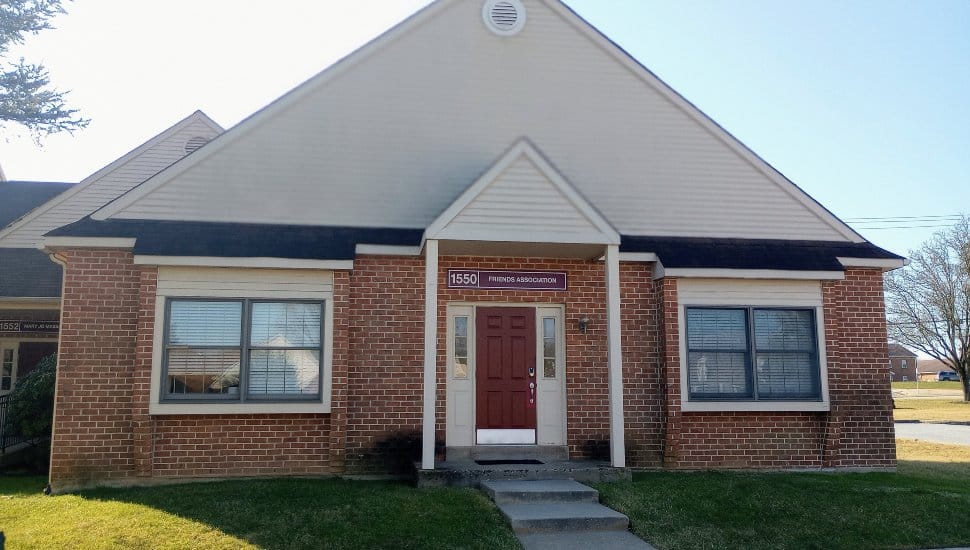Successful Friends Association Eviction Prevention Program Ready to Expand

Sometimes, all it takes is a little knowledge and some legal muscle from experts to save your home and your family.
That’s the philosophy behind a successful Friends Association program that helps keep families from being evicted and homeless.
Defense attorney Loreen Kemps runs the Eviction Prevention Case Resolution program, a program that mingles social services, legal aid, and financial support to mitigate evictions.
Kemps, formerly a Chester County public defender, met with the Friends Association and was offered an opportunity to set up a Eviction Prevention program with an eventual goal of expanding it.
The EPCR program was founded in September 2020 as a pilot program, first in Downingtown, then Coatesville and, more recently, in West Chester.
The nonprofit program has assisted at least 397 households, with 99 percent of its cases resulting in a favorable tenant outcome with participants maintaining their housing in one form or another.
The program has saved the county about $6 million in nearly four years.
Kemps credits the program’s success to a great staff, each with different backgrounds to meet the varying needs of their clients.
Now, thanks partly to support from the United Way of Chester County and available American Rescue Plan Act funds, EPCR is expanding into other Chester County communities.
Tenant troubles
The current rental market has seen skyrocketing rents and less rental unit availability.
Evictions happen when households face a temporary job loss or an employee has to cut back hours to care for a family member.
Two adults in a household may be working two or three jobs with no cushion but make too much to qualify for food aid and childcare help.
Some households live paycheck to paycheck, “so one health crisis, one car repair can put them behind.”
Others may have a bad rental history and must pay more because they can’t get into certain apartment complexes.
When a landlord-tenant complaint gets filed, the tenant will owe the rent, late fees, a filing fee of up to $200, and attorney fees that can reach $500.
“These households were not only behind on their rent but to catch up, they owe an additional $700 and that’s why they can’t get ahead,” Kemps said.
The EPCR staff determines how the household got to the eviction stage and what they need to do to recover.
Some may need one month’s rent.
Others may need a cheaper place to live, while others may qualify for benefits to cover costs like food and free up money for rent.
Here’s How It Works
The program is open to households that are at or below 50 percent of the mean income in Chester County.
EPCR staff reach out before any court appearances via email, text, phone, or flyer after a landlord-tenant eviction has been filed that would create housing instability for the tenant.
“We want to catch them before they end up homeless and on the street or in a situation where they have to go into a shelter,” Kemps said.
Each EPCR team has a court attorney, a court coordinator, a Housing and Resource Navigator. and administrative support.
The staff will educate tenants about the eviction process, provide legal aid at court appearances, negotiate between the tenant and the landlord, and let the tenant know what resources are available to help prevent the eviction.
At the same time, depending on the situation, an effort is made to secure Emergency Rental Assistance to cover past due rent and future rent for a set number of months.
Once the landlord gets that check, he withdraws the eviction complaint against the tenant.
It won’t necessarily end there, however. Part of EPCR’s job is ensuring the landlord and tenant talk and understand each other going forward.
It’s also there to offer case management services beyond a short-term solution. The staff will do a housing assessment, a budget, and a checklist of resources to see if the family could benefit from any Friends Association program or outside help.
They can also help find another rental property and relocate a tenant if necessary.
Kemps hopes the Eviction Prevention program could one day serve as a model for similar programs statewide or even nationwide.
“The plan was always to expand it and assist as many families as possible,” Kemps said.
Connect With Your Community
Subscribe to stay informed!
"*" indicates required fields







































![95000-1023_ACJ_BannerAd[1]](https://vista.today/wp-content/uploads/2023/03/95000-1023_ACJ_BannerAd1.jpg)









